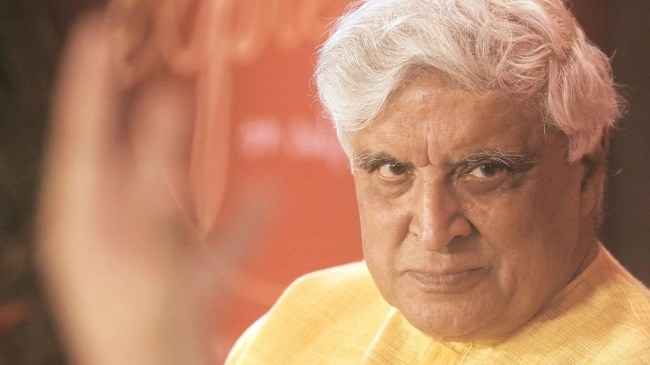Opinion In not standing for Javed Akhtar’s right to free speech, what West Bengal government reveals about itself
Intellectual freedom is never a given. It is always precarious, always contested, and therefore always worth defending against those who would prefer silence to questioning
 The postponement of this cultural event not only enhances their political capital to bargain with the ruling establishment but also reestablishes their hegemony as the stakeholder of Muslim cultures and religious worldviews.(Express Archive Photo)
The postponement of this cultural event not only enhances their political capital to bargain with the ruling establishment but also reestablishes their hegemony as the stakeholder of Muslim cultures and religious worldviews.(Express Archive Photo) Can two figures who are a millennium apart ever cross paths? The idea sounds bizarre at first. However, the relationship becomes glaringly obvious whenever someone is silenced because of his ideas. This improbable connection unites the modern Indian poet-lyricist Javed Akhtar and the medieval Arab philosopher Ibn al-Haytham. Both disturb orthodoxy.
Ibn al-Haytham/Alhazen founded the field of optics and promoted observation as the means of discovering the truth. However, he lived in a time when theologians maintained that causality did not regulate nature. It was God’s will. Ibn al-Haytham skilfully handled this conflict by arguing that reason and experiment were separate paths to knowing.
Recently, Javed Akhtar, a renowned Bollywood lyricist, was invited to a literary programme in West Bengal titled “Urdu in Hindi Cinema.” Islamic organisations protested against him for his atheism. Fearing unrest during an election year, the state government indefinitely postponed the event, citing “unavoidable circumstances”. Ironically, while director Muzaffar Ali, who also lives in a liminal space between faith and secularism, didn’t face any objection, the vigilantes found Akhtar’s vocal atheism intolerable.
The cancellation was much more ironic than the event itself. The title of the programme, “Urdu in Hindi Cinema”, had the potential to start a long-overdue linguistic debate. From Mughal-e-Azam’s dialogue to Sahir Ludhianvi, Kaifi Azmi and Akhtar’s poetry, Urdu’s lyricism and imagination have characterised Bollywood for decades. However, Urdu has lately been eclipsed by Hindi. A debate like this could have challenged linguistic convention and highlighted the contradiction of a society that marginalises Urdu in everyday life while celebrating it on celluloid. Focus, rather, turned to Akhtar’s atheism, demonstrating how religion and not the language always remains the solace for orthodoxy.
In Ibn al-Haytham’s time, criticising authority came with a price. A thinker who delves too deeply into philosophy or science risks being labelled a “zindiq” (heretic). Today’s punishments differ — no inquisitions or mediaeval tribunals — but the drive for orthodoxy remains the same. Dissenters suffer cancellations, intimidation and public condemnation. The time and languages have changed, yet the response of orthodoxy to silence alternative voices remains predictably consistent. Orthodoxy, whether medieval or modern, has always been shaken by the destabilising power of free thought.
Defending Akhtar’s right to speak, even for those of us unmoved by his poetry, is to preserve the very spirit that once allowed Ibn al-Haytham to illuminate the world with reason. I may not like his verses, but, at the same time, I would never wish, in Platonic fashion, to see him exiled for being a poet or lyricist.
Alhazen sought truth by experimentation, scepticism and observation rather than deference to authority, even if he framed his questions in religious terminology. Once labelled heretics, medieval scholars such as Ibn Sina and al-Razi are now revered as pillars of humanity’s intellectual history, even in the Islamic world, albeit not always. The irony is incisive. While Islamic cultures use these once-suspicious intellectuals as evidence of their intellectual heritage, Islamic organisations in West Bengal try to impose medieval laws on modern life.
The real similarity between Ibn al-Haytham and Javed Akhtar lies not in their respective fields of expertise but rather in their unease against the defenders of certainty. Both faced the distrust and animosity that were reserved for people who did not submit to orthodoxy. Alhazen feigned madness in order to survive, withdrawing into solitude rather than be punished for challenging accepted realities. And the pattern remains the same even in our age. Akhtar takes on cultural gatekeepers who employ disruption, boycotts and cancellations as weapons, in contrast to Ibn al-Haytham’s confrontation with inquisitors. The literary festival now replaces the medieval public sphere. The accusations move from heresy to atheism. The goal remains the same. The West Bengal government, with its shaky power, sides with the orthodoxy.
“Truth is sought for its own sake… the seeker after truth does not put his trust in any written word,” Alhazen stated with crystal clarity. These remarks continue to resonate as a statement of intellectual bravery a thousand years later. They serve as a reminder that his legacy extended beyond the scientific method and optics to include the boldness to challenge authority. Upholding the fundamental idea Ibn al-Haytham espoused, the rejection to allow orthodoxy to determine the limits of thought, is what it means to protect Akhtar’s ability to dissent.
Both point to the same truth: Intellectual freedom is never a given. It is always precarious, always contested, and therefore always worth defending against those who would prefer silence to questioning.
The writer teaches Media Studies at the Central University of Jammu






